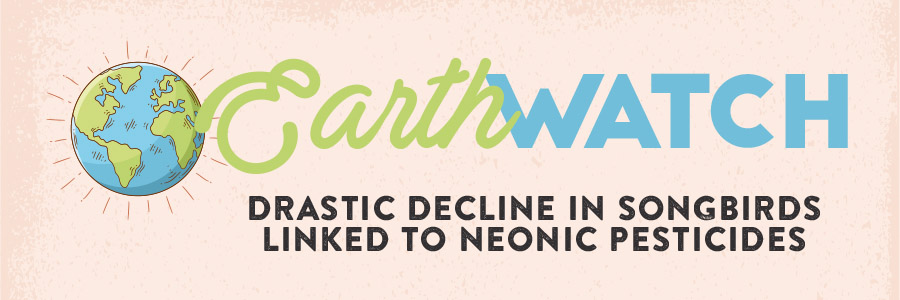


Sign-up for {N}power to get exclusive discounts, newsletters, members-only features, and more!
 Denver - Design District - Alameda and Broadway
Denver - Design District - Alameda and Broadway
368 S Broadway
Denver, CO 80209
United States
 Preferred Store:
Select a Store
Preferred Store:
Select a Store

Neonicotinoids, or “neonics,” are a class of insecticides introduce in the 1990s and are currently the most widely used insecticides in the world. They are most commonly used as seed treatments, that is, seeds are coated in the pesticide before they are sold. As the treated seeds grow, the neonics are taken up by the roots, where they are incorporated throughout the entire plant, including the leaves, pollen, and nectar. They are also widely dispersed into the environment and numerous studies have shown that they impact more than just the insects they target, including earthworms, fish, honeybees, and other important pollinators.1 2 3 4 5 And now, a new study has linked neonics to the dramatic decline in North American songbirds.

The study, published in late 2019 in the journal Science, found that migrating birds that ate the equivalent of just one or two neonic-treated seeds suffered immediate weight loss, delaying their normal migration, severely harming their chances of surviving and reproducing, according to researchers.6
“We show a clear link between neonicotinoid exposure at real-world levels and an impact on birds,” lead author Margaret Eng said.
According to an earlier study published in the journal PLOS One, agricultural land is 48 times more toxic to honeybees than it was 25 years ago, almost entirely due to neonicotinoids, “which potentially threatens the health of the honeybees and other pollinators and may contribute to declines in beneficial insect populations as well as insectivorous birds and other insect consumers.”7
Kendra Klein, senior staff scientist at Friends of the Earth US and co-author of the study, said that the significant increase in toxicity of agricultural land correlates directly with the sharp decline in bees, butterflies, other pollinators, and birds. “Neonics are like a new DDT, except they are a thousand times more toxic to bees than DDT was,” she said.
Buy organically grown food! Additionally, it’s not just crop seeds that are routinely coated with neonicotinoids—so are the seeds used to grow many flowers and plants you can buy at your local plant nursery, big box store, or on the internet. As you begin to think about spring planting, remember the birds and the bees (and other pollinators!) and avoid buying flowers grown from neonic-coated seeds, ask the seller if the plants are grown from neonic-treated seeds, and if you plant from seed, always choose organic.



Sign-up for {N}power to get exclusive discounts, newsletters, members-only features, and more!
